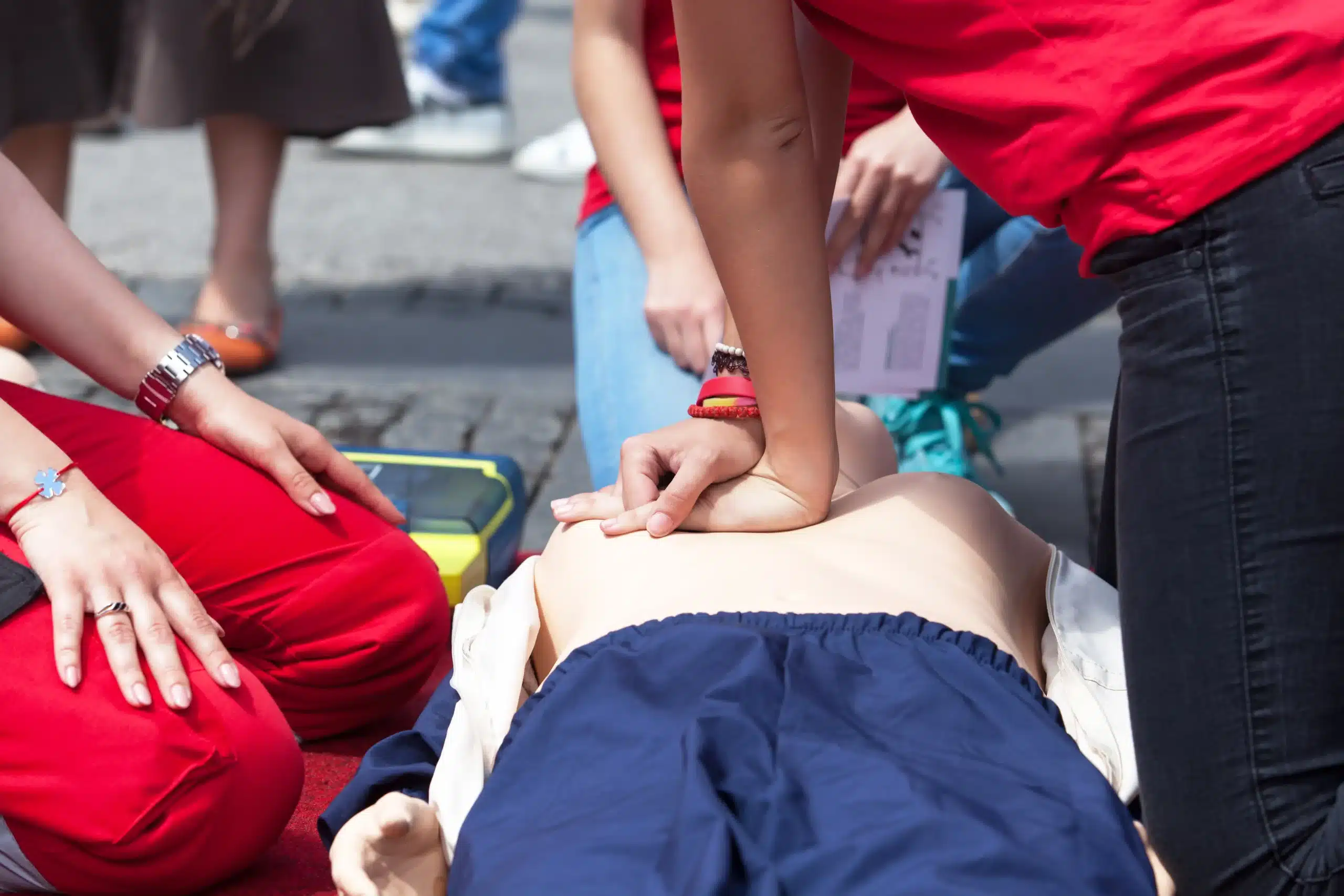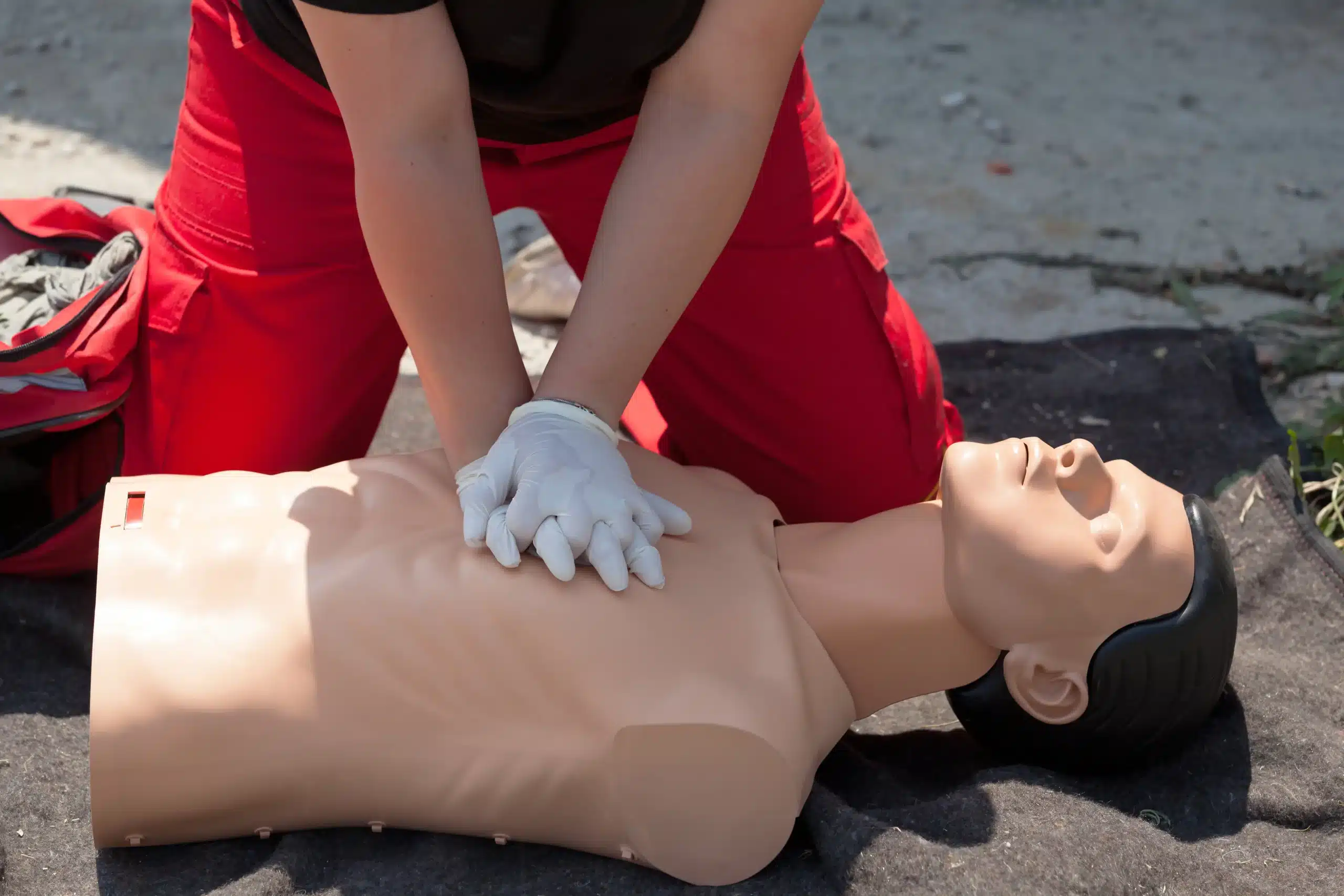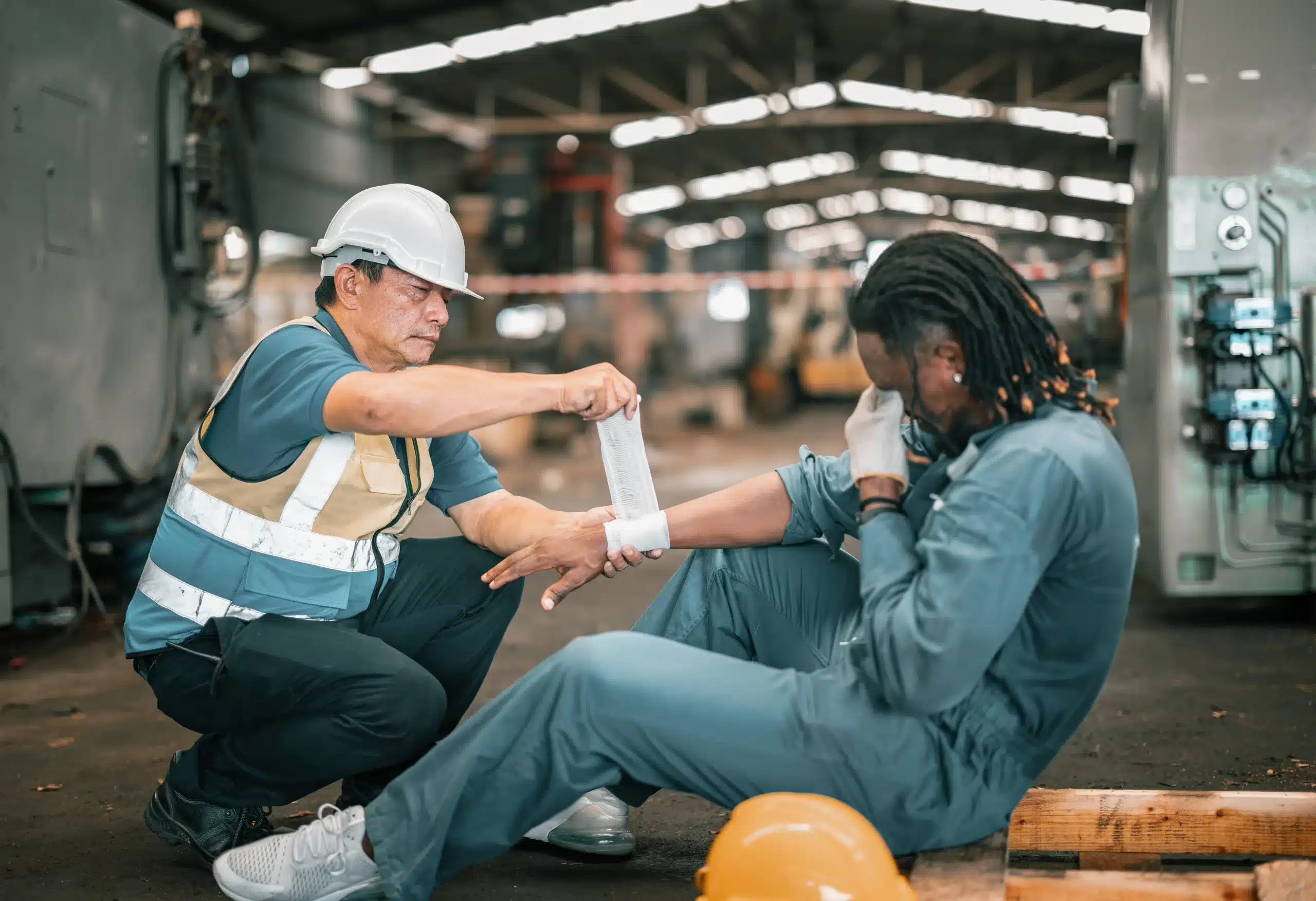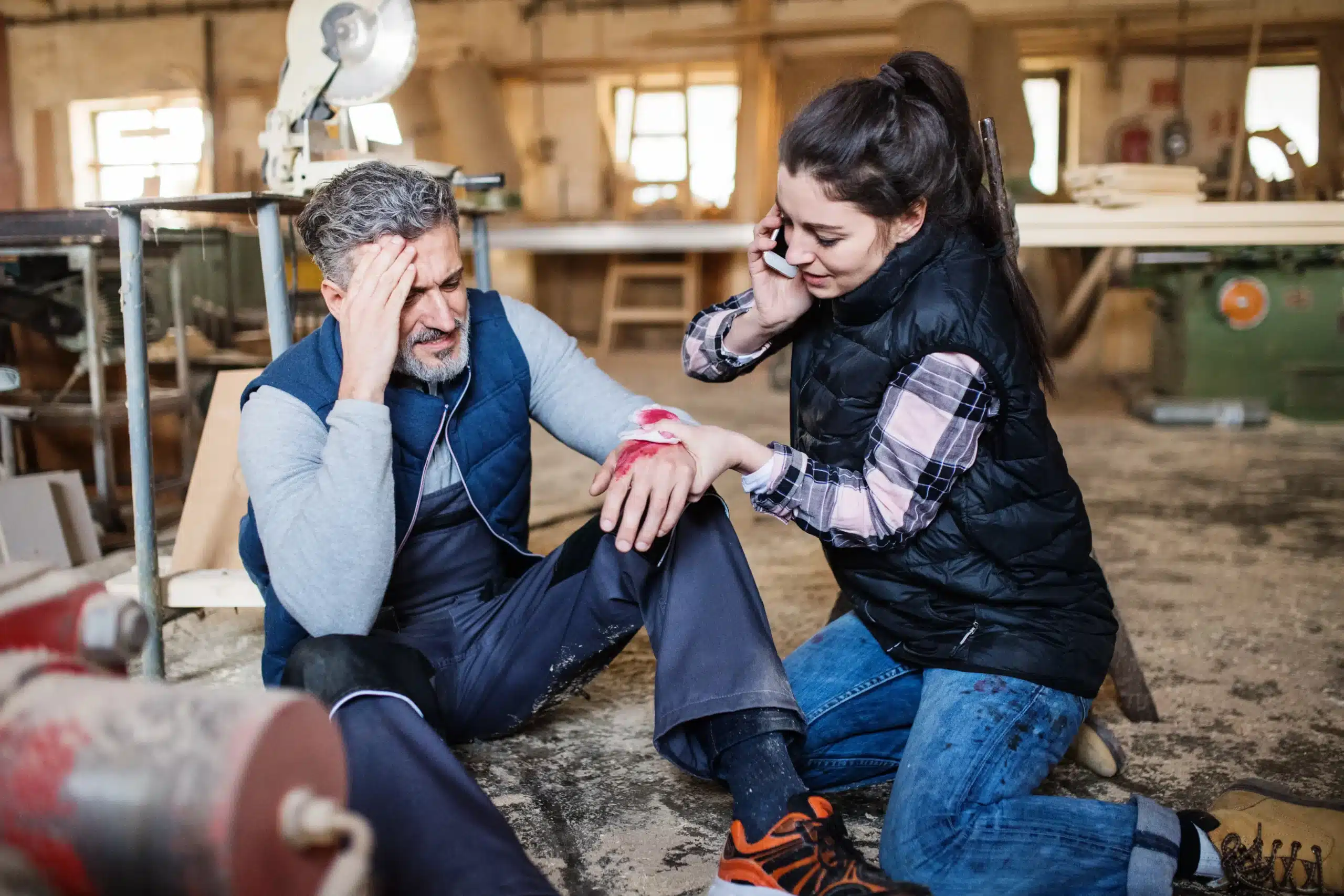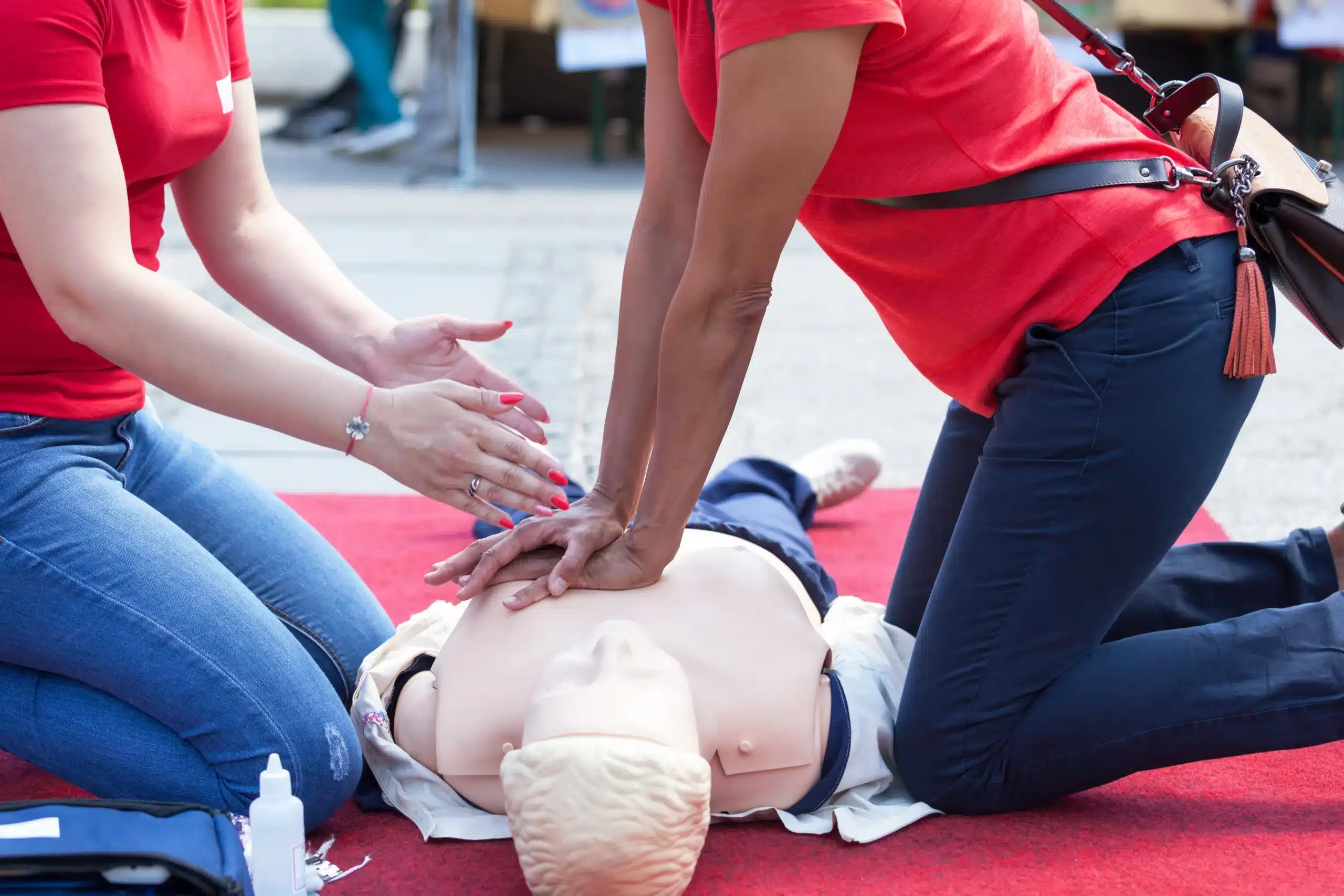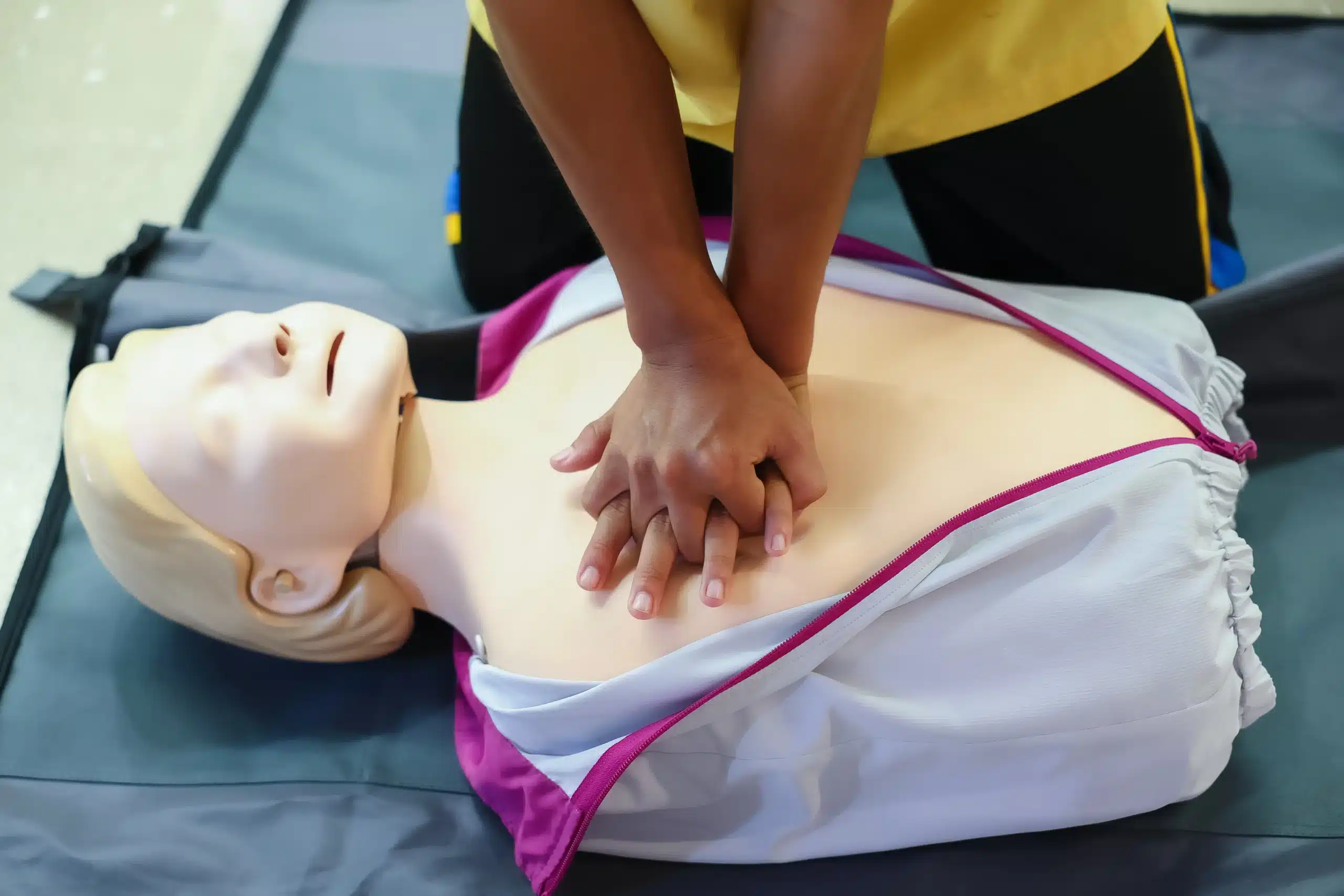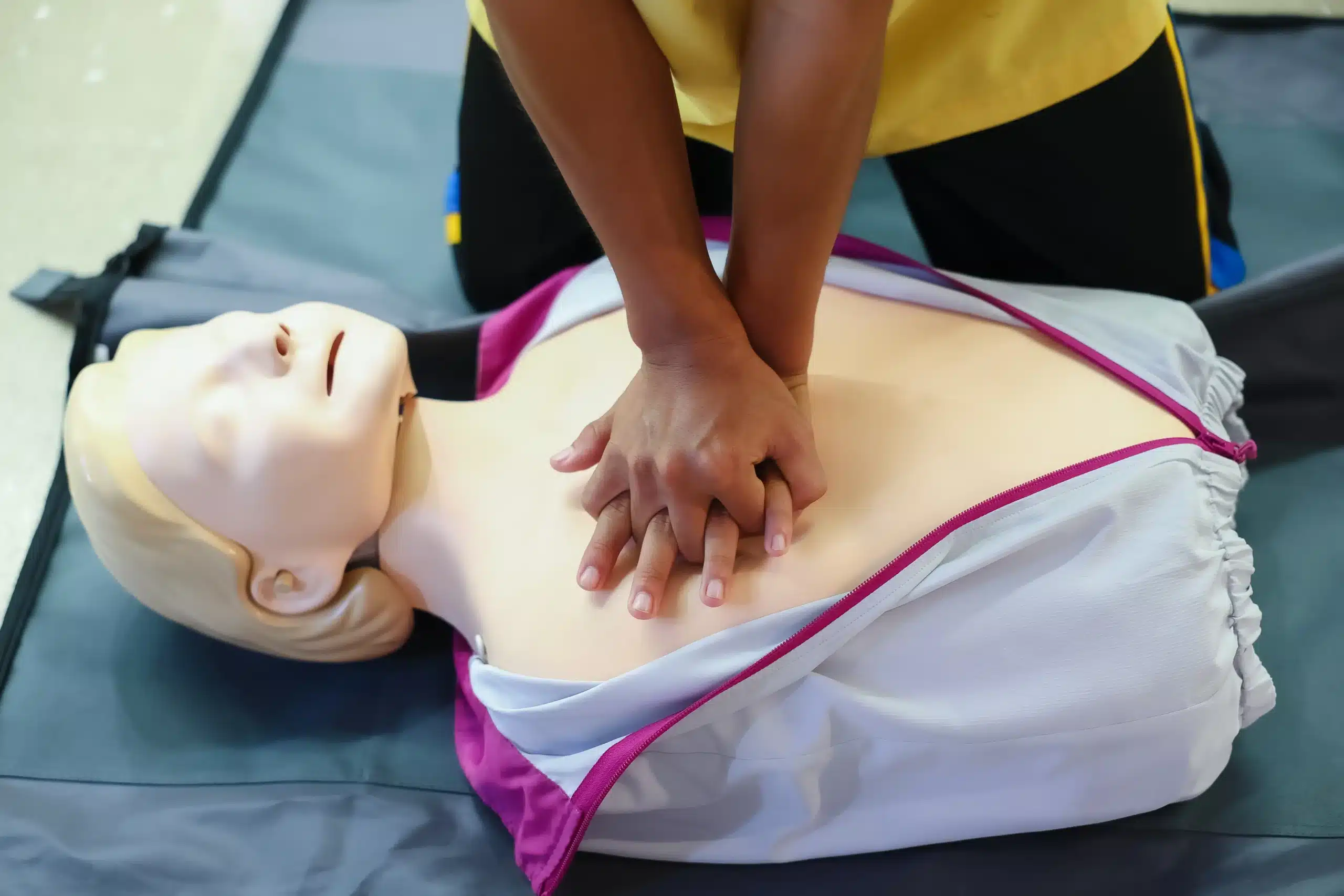In San Jose, having first-aid skills isn’t just helpful—it can be life-saving. This comprehensive guide explores the various first-aid training options available in San Jose, catering to diverse needs and skill levels. Whether you’re a healthcare professional seeking advanced certification or a community member wanting to learn basic life support, we’ll help you find the right course. We’ll cover different types of first-aid training in San Jose, including CPR, AED usage, and specialized courses. We’ll also discuss reputable training providers, average course costs, and the importance of hands-on practice. Finally, we’ll debunk common first-aid myths and empower you to make informed decisions about your training.
Key Takeaways
- First aid training equips you for emergencies: Learn essential skills to handle situations ranging from minor cuts to life-threatening events. Find a course that aligns with your specific needs, whether it’s basic life support or specialized training.
- Explore diverse training options in San Jose: Discover various providers like Safety Training Seminars and the American Red Cross, offering courses tailored to different skill levels and schedules. Consider factors like course content, cost, and format (in-person, online, or blended).
- Make an informed decision when choosing a course: Define your learning goals and compare providers based on certifications offered, instructor experience, and course content. Ask questions before enrolling to ensure the course meets your specific requirements.
What is First Aid Training in San Jose?
First aid training in San Jose gives you the skills to handle medical emergencies, covering everything from minor injuries like cuts and burns to more serious situations like heart attacks and strokes. Organizations like the American Red Cross offer various first aid classes in San Jose, with options for in-person and blended learning. Safety Training Seminars also provides comprehensive training and certification in essential life-saving skills, including CPR, BLS, ACLS, and PALS. These courses prepare you to confidently respond to a wide range of medical situations.
Why First Aid Skills Matter
Knowing first aid can truly make a difference in emergencies. Providing immediate assistance, such as performing CPR or using an AED, can significantly improve survival rates, especially during cardiac events. First aid skills empower you to be a potential lifesaver. Real-life stories demonstrate how bystanders with first aid training have intervened and saved lives. These skills are also fundamental for healthcare providers. Healthcare training emphasizes first aid as an essential skill, enabling providers to respond effectively during emergencies.
Common First Aid Myths
It’s crucial to separate fact from fiction when it comes to first aid. Many common misconceptions can actually worsen injuries or illnesses. For example, one persistent myth suggests applying butter or oil to a burn promotes healing. This is untrue and can exacerbate the injury. Debunking these myths and learning the correct procedures is essential for effective emergency response. Accurate first aid knowledge can prevent further harm and potentially save lives.
Find the Right First Aid Course
Finding the right first aid course depends on your individual needs and goals. Whether you want basic lifesaving skills or advanced certifications, San Jose offers a variety of options. Let’s explore the different types of first aid courses available.
Basic First Aid
Basic first aid courses cover essential skills like treating minor injuries, such as cuts, burns, and sprains. You’ll also learn to recognize and respond to medical emergencies like choking and allergic reactions. The American Red Cross offers these courses in San Jose, with options for in-person and blended learning (a mix of online and in-person instruction). Certification is typically valid for two years.
CPR and AED Training
CPR (cardiopulmonary resuscitation) and AED (automated external defibrillator) training teaches you how to respond to cardiac emergencies. You’ll learn to perform chest compressions, give rescue breaths, and use an AED to help someone experiencing sudden cardiac arrest. The American Red Cross also provides this training in San Jose, with in-person and blended learning available. These skills are valuable anywhere, from work to home.
Advanced First Aid
For healthcare professionals and those wanting more in-depth training, advanced first aid courses cover more complex medical care. These courses cover administering medications, managing severe injuries, and providing advanced life support. Safety Training Seminars offers several American Heart Association-certified courses in San Jose, including BLS (Basic Life Support), ACLS (Advanced Cardiovascular Life Support), and PALS (Pediatric Advanced Life Support). They also offer convenient renewal options like the RQI (Resuscitation Quality Improvement) program.
Specialized First Aid Training (e.g., Pediatric, Wilderness)
Specialized first aid courses address specific situations or environments. Pediatric first aid focuses on caring for infants and children, while wilderness first aid prepares you for medical emergencies in remote areas. CPR is a crucial part of wilderness first aid, helping sustain life until professional help arrives. Think about your personal or professional needs when selecting a specialized course.
Top San Jose First Aid Training Providers
Finding the right first aid training provider is crucial for receiving quality instruction and obtaining a recognized certification. Here’s a rundown of reputable options in San Jose:
Safety Training Seminars
Safety Training Seminars, a woman-owned American Heart Association (AHA) Training Center, offers various certifications, including CPR, First Aid, BLS, ACLS, PALS, and EMSA Health and Safety. They prioritize high-quality, AHA-compliant training at their San Jose location and are committed to excellent customer service. Explore their BLS courses or learn more about their low price guarantee. For childcare providers in California, they also offer the EMSA Health, Safety, and Lead Poisoning course.
American Red Cross
The American Red Cross is a well-known provider of first aid and CPR training. Their San Jose location offers various courses, including pediatric first aid and CPR, making them a suitable choice for parents, caregivers, and childcare providers. They offer both in-person classes and blended learning options for scheduling flexibility.
American Heart Association
While the AHA doesn’t directly conduct training, they authorize training centers like Safety Training Seminars to deliver their official courses. Healthcare professionals seeking certification or recertification should consider the AHA’s RQI program, a modern approach to maintaining resuscitation skills. You can find AHA-certified courses, including BLS, ACLS, and PALS, through Safety Training Seminars in downtown San Jose.
Local Community Colleges
Community colleges in San Jose often offer affordable first aid and CPR training. These courses are a convenient option for residents seeking certification and can be a good starting point for those considering healthcare careers. Check with your local community college for their course catalog and schedule.
Private Training Companies
Many private training companies in San Jose offer first aid and CPR courses. These companies often provide specialized training tailored to specific industries or professions, such as healthcare or construction. Researching different private providers can help you find a course that meets your specific requirements.
What Happens in a First Aid Course?
Wondering what to expect in a first aid class? First aid courses equip you with the skills and confidence to handle a range of medical emergencies. From minor injuries to life-threatening situations, you’ll learn how to provide immediate care until professional help arrives. Let’s break down what a typical first aid course entails:
Learn Key Skills and Knowledge
First aid courses cover essential skills and knowledge needed to respond effectively to emergencies. You’ll learn to assess a situation, recognize signs and symptoms of various injuries and illnesses, and provide appropriate care. Topics often include treating burns, cuts, sprains, fractures, choking, and allergic reactions. Many courses, like those offered by the American Red Cross, cover adult and child first aid, preparing you for diverse situations.
Practice with Hands-on Scenarios
Hands-on practice is a crucial part of first aid training. Instructors create realistic scenarios so you can apply what you’ve learned in a simulated environment. You’ll practice techniques like bandaging wounds, splinting fractures, and performing CPR on mannequins. This practical experience builds confidence and prepares you to react calmly and efficiently in a real emergency. In-person classes offer personalized attention from instructors, allowing them to address individual questions and provide tailored feedback.
Get Certified
After successfully completing a first aid course, you’ll receive certification, usually valid for two years. This certification demonstrates your competence in first aid and can be valuable personally and professionally. Remember to keep track of your certification’s expiration date and take a renewal course to stay current with the latest guidelines.
Benefits of Certification
Learning first aid is a valuable life skill, empowering you to help others in need. Being certified provides peace of mind, knowing you can make a difference in an emergency. Whether at home, work, or in the community, your first aid skills can be invaluable. Some workplaces require first aid certification, so it can also enhance your job prospects.
Choose a Flexible Learning Option
Finding the right first aid course often comes down to choosing a learning format that works for your schedule and learning style. Let’s explore some popular options.
In-Person Classes
In-person classes are a great fit if you value hands-on learning and personal interaction. You’ll work directly with a certified instructor, ask questions in real-time, and practice your skills with other students. This direct interaction can be incredibly helpful for mastering essential techniques and building confidence. The Red Cross highlights the benefits of this approach, emphasizing the hands-on training and personalized attention you receive in a traditional classroom setting. For those who thrive in a structured, interactive environment, in-person training offers a solid foundation in first aid.
Online Courses
If your schedule is packed or you prefer learning at your own pace, an online first aid course might be the perfect solution. Online learning offers the flexibility to access course materials and complete modules whenever and wherever it’s convenient for you. This format is especially helpful for refreshing your skills or fitting training around work and family commitments. Just keep in mind that online courses typically require an in-person skills session for certification. CPR classes in San Jose often utilize this blended approach.
Blended Learning
Blended learning combines the best of both worlds. You’ll typically complete the knowledge portion of the course online, followed by an in-person skills session to practice what you’ve learned. This approach offers a good balance of flexibility and hands-on experience. The Red Cross offers blended learning for CPR, allowing you to learn the basics online and then demonstrate your skills in person.
Pick the Right Format
Choosing the right format depends on a few key factors. Think about your specific certification needs (like basic first aid, CPR/AED, or more advanced certifications such as ACLS or PALS), your learning style, and your schedule. Do you prefer the structure of a classroom or the freedom of online learning? Are you looking for weekday or weekend classes? Consider exploring the options available at Safety Training Seminars in San Jose. By carefully evaluating your needs and preferences, you can choose a format that sets you up for success.
First Aid Class Costs and Value
Knowing the price range for first aid training helps you budget and find the best value. This section breaks down average costs, potential discounts, and what can influence pricing.
Average Course Prices
In San Jose, a basic two-hour CPR and AED course typically costs around $35 per person. If you’re training a group, say for your workplace, a class for eight or more averages around $280. Remember, these are just averages. Prices vary based on the provider and specific course content. Check directly with training centers like Safety Training Seminars for their latest BLS course fees.
Discounts and Promotions
Many training providers offer discounts, especially for group bookings, students, or returning customers. Look for seasonal deals or early bird registration discounts. Contact the provider directly to ask about current promotions.
Factors Affecting Course Costs
Several factors influence the final cost of your first aid training. Specialized courses, like those combining First Aid and CPR or including Pediatric CPR and AED training, often have higher prices. AED training usually increases the overall cost, too. The course length and the certification offered can also play a role.
Group Training for Businesses
For businesses in San Jose, group training is a cost-effective way to ensure employee safety and compliance. Providers like Safety Training Seminars offer various options, including renewal courses for certifications like BLS, ACLS, and PALS, and the American Heart Association’s RQI program for healthcare professionals. Bundling courses or opting for on-site training can sometimes lead to discounts. Reach out to training centers to discuss your business needs and explore training solutions.
Choose the Right First Aid Course
Picking the right first aid course is a smart move, so let’s make sure you find the perfect fit. This section breaks down how to choose a course that aligns with your specific needs and goals.
Define Your Needs and Goals
Before you start searching for a first aid course, take a moment to think about what you want to achieve. Are you looking for basic first aid knowledge, or do you need a specific certification like BLS? Consider your learning style too. Do you prefer in-person instruction, online learning, or a mix of both? Finally, think about your schedule. Do you need a weekday course, a weekend option, or something in between? CPR Classes in San Jose: Your Complete Guide offers helpful tips for choosing the right class format. Having a clear idea of your needs will help you narrow down your choices.
Compare Providers and Courses
Once you know what you’re looking for, compare different providers and courses. Look at what each course covers. Some focus on basic first aid, while others include CPR and AED training. Safety Training Seminars offers a wide range of American Heart Association (AHA) certified courses, including BLS, ACLS, PALS, and First Aid. They also offer convenient renewal options like the RQI program. Pricing can vary, so see what works with your budget. This guide offers a good overview of how pricing can change based on what’s included in a course. Consider factors like instructor experience and class size as well.
Questions to Ask Before Enrolling
Before you sign up, ask a few questions. Does the certification meet the requirements of your workplace or any professional organizations you belong to? Some employers might require annual recertification. This post addresses common first aid training questions and might give you a starting point. Also, ask about the instructors’ experience and the course format. Knowing these details upfront helps you make an informed decision. For example, does the course cover when and how to call 911? This article discusses frequently asked first aid questions, which might spark more questions for your chosen provider.
Make an Informed Decision
Learning first aid is a valuable skill. In emergencies, knowing what to do can truly make a difference. Whether you’re a healthcare professional or just want to be prepared, having first aid knowledge can give you confidence. This article highlights the importance of first aid training, especially for healthcare workers. This resource debunks common first aid myths and provides accurate information. Take the time to choose the right course, and empower yourself with life-saving skills.
Related Articles
- CPR Classes in San Jose: Your Complete Guide – San Jose CPR Classes
- Enhance Workplace Safety with CPR and First-Aid Training
- 12 Common CPR Myths Debunked – San Jose CPR Classes
- Safety Training Seminars San Jose: A Complete Guide – San Jose CPR Classes
- CPR Courses in San Jose: Your Complete Guide – San Jose CPR Classes
Frequently Asked Questions
What’s the difference between basic first aid and advanced first aid?
Basic first aid equips you to handle common injuries like cuts, burns, and sprains. Advanced first aid delves deeper, covering more complex medical situations and often involves administering medications or providing more advanced life support. Healthcare professionals often pursue advanced certifications like ACLS and PALS.
How do I choose the right first aid course in San Jose?
Think about why you want first aid training. Do you need it for work, personal knowledge, or a specific activity like wilderness hiking? Once you know your goals, look at what different providers offer. Consider the course content, schedule, and cost to find the best fit. Safety Training Seminars, the American Red Cross, and local community colleges are good places to start your search.
What can I expect during a first aid class?
Expect a mix of learning and hands-on practice. You’ll learn about assessing injuries, providing initial care, and when to call for professional help. Most courses include practical scenarios where you’ll practice bandaging, splinting, and maybe even CPR on a mannequin.
How much does first aid training cost in San Jose?
Costs vary depending on the course type and provider. A basic CPR and AED course might cost around $35, while more specialized training will be more. Look for discounts, especially if you’re registering a group. Safety Training Seminars offers a low price guarantee, so it’s worth checking their rates.
How often do I need to renew my first aid certification?
Most basic first aid certifications are valid for two years. Check with your employer or certifying organization for specific renewal requirements. Some advanced certifications might have different timelines. Safety Training Seminars offers renewal courses and programs like the RQI program to help maintain your skills.


